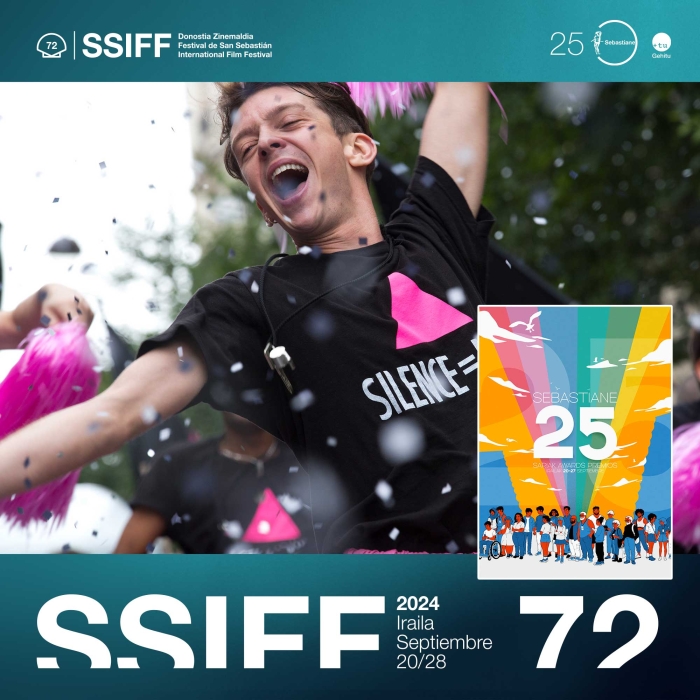The poster for this special edition is a tribute to the diverse public who have accompanied the 25 years of GEHITU’s LGBTIQA+ Award presented at the Festival, work of local designer Rubén B. Caballero
On 30th September 2000, Gehitu (the Basque association of gay, lesbian, bisexual, trans and intersex people) gave the first Sebastiane Award going to the film best reflecting “the social reality of homosexuals” at the San Sebastian Festival. From Krámpack (Cesc Gay, 2000) to 20.000 especies de abejas / 20,000 Species of Bees (Estibaliz Urresola, 2023), from the first to the last award, the prize, in keeping with the association itself, has extended the field of its recognition, following the realities, freedom and progress also made by trans, bisexual and intersexual persons, to encompass all those falling within the LGBTIQA+ collective.
The 25th anniversary of this pioneer award in Spain will come with the special screening of the film 120 battements par minute / 120 Beats Per Minute, winner of the Sebastiane Award in 2017, on Sunday 22nd at the Príncipe Cinemas (18:15), attended by its director, Robin Campillo, and its leading actor, Nahuel Pérez Biscayart.
Throughout its history, the award has recognised the portayal of the situation of sexual freedom in countries such as Sri Lanka, Venezuela, Algeria and Belgium, filmmakers taking their first steps, like Nadine Labaki (Caramel, 2007), the second movies by Manuel Martín Cuenca (Malas temporadas, 2005), Jon Garaño and Jose Mari Goenaga (80 egunean / For 80 Days, 2010), and others by long-standing directors such as Jane Campion (The Power of the Dog, 2021).
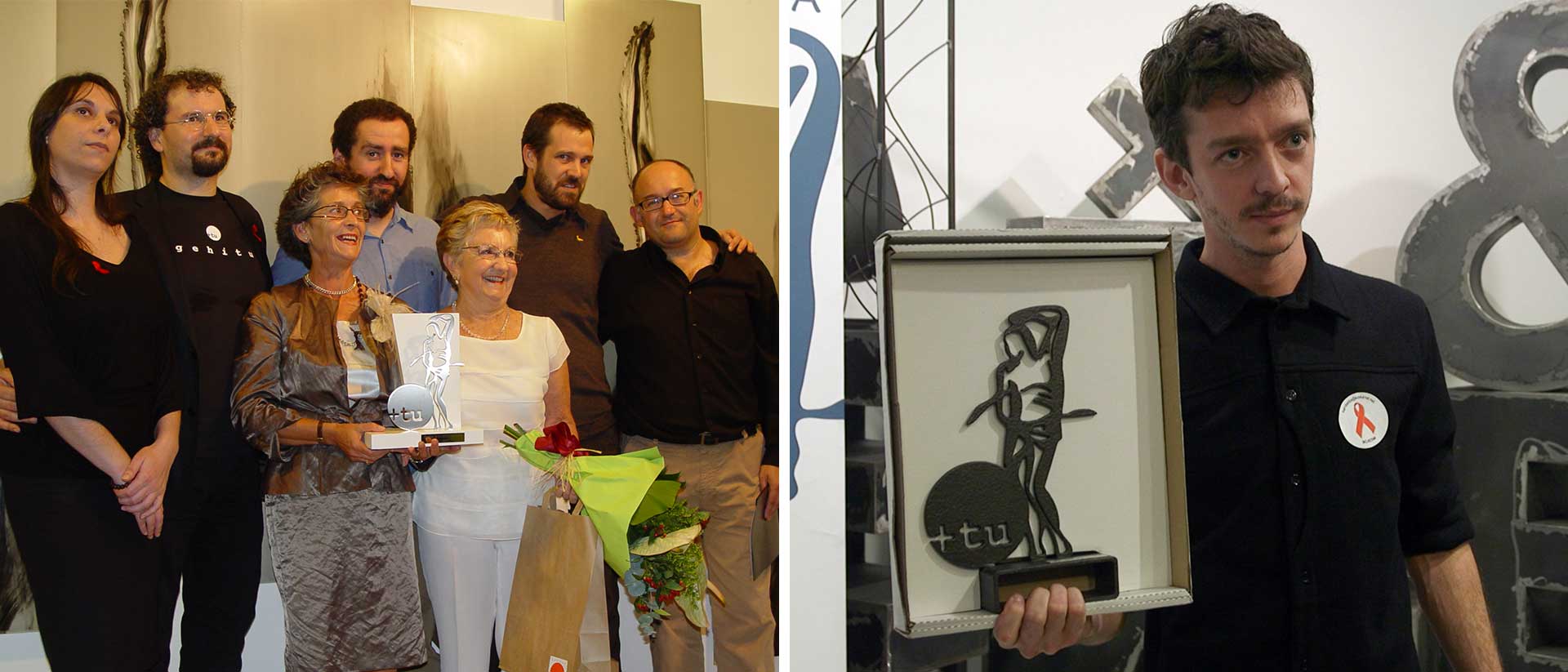
In 2024 fourteen movies compete for the Sebastiane Award 2024: two in New Directors: Bagger Drama and Por donde pasa el silencio / As Silence Passes By; five in Horizontes Latinos (Cidade; Campo; El Jockey / Kill the Jockey; Los domingos mueren más personas / Most People Die on Sundays; Ramón y Ramón and Reas); three in Zabaltegi-Tabakalera (I Saw The TV Glow, Sombra grande / Big Shadow and Boku No Ohisama / My Sunshine); one in Perlak (Emilia Pérez); and three in Made in Spain (Norberta; Orgullo Vieja; Reír, cantar, tal vez llorar / To Laugh, To Sing , Perhaps To Cry). The jury will be made up of members of Gehitu together with actors Eneko Sagardoy and Anna Castillo, and the awards will be announced in the Bidassoa Taproom on Friday 27th at 19:00.
The poster designed for this special edition pays tribute to the diverse public who has accompanied the award over its 25 years at the Festival and is the work of local designer Rubén B. Caballero.
Focus on Latin America
In its evolution, in 2013 Gehitu decided to dedicate a specific award to Latin American films, the Sebastiane Latino which, in its first eleven editions, has recognised the work of filmmakers including Pepa San Martín (Rara, Chile, 2016), Sebastián Lelio (Una mujer fantástica / A Fantastic Woman, Chile, 2017), Jayro Bustamante (Temblores / Tremors, Guatemala, 2019) and Clarisa Navas (Las mil y una / One in a Thousand, Argentina, 2020). This year, the winning movie of the Sebastiane Latino Award is Baby, a Brazilian production, directed by Marcelo Caetano, for “lending the necessary shades to a tale of the underworld and empathy to the people who live their queer love or create diverse families”. In addition, last year’s winner, Transfariana, by Joris Lachaise will screen during the first weekend of the Festival in Irun, Urnieta and Deba.
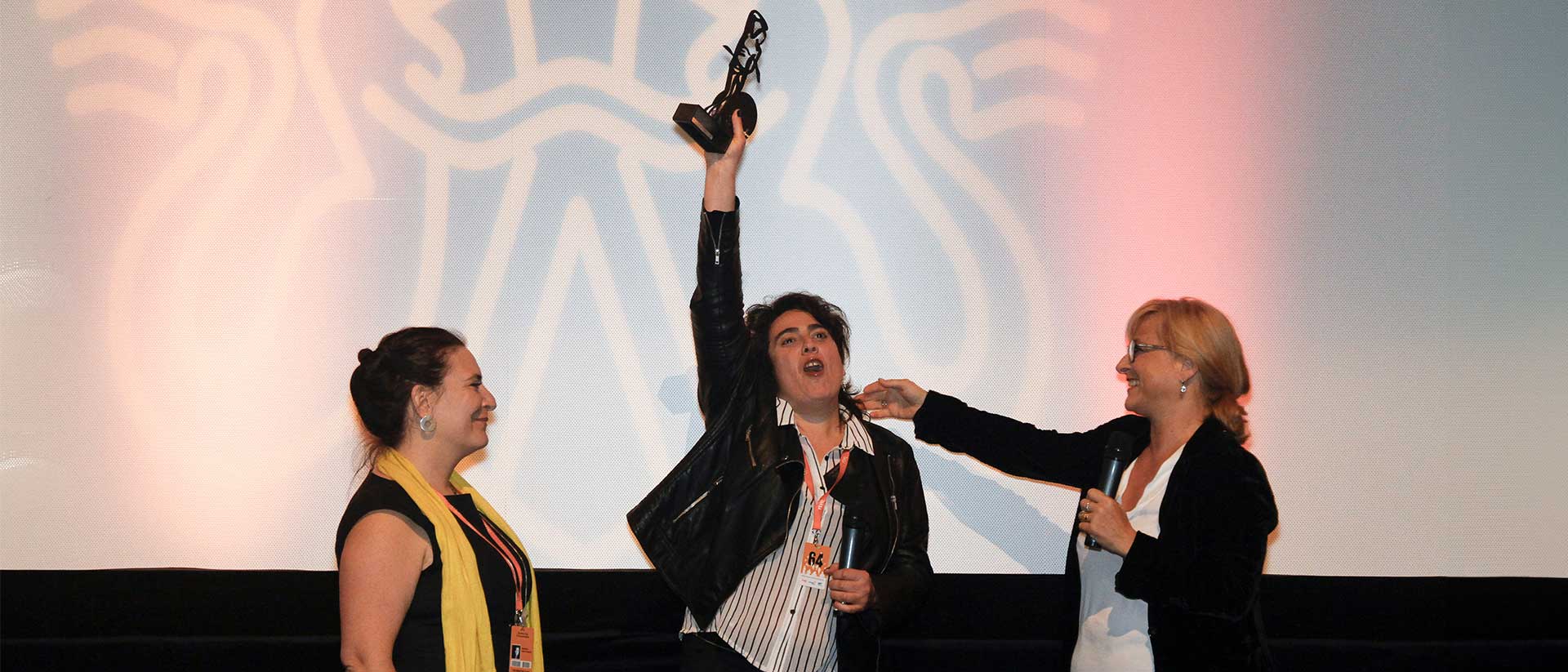
Tenth Meeting of LGBTIQA+ Festivals, with the backing of the Ministry of Equality
Another result of the collaboration between the San Sebastian Festival and Gehitu is the Meeting of LGBTIQA+ Festivals, which celebrates its tenth edition in 2024. Particularly interesting in the regular programme organised around the meeting by Gehitu and the San Sebastian Festival is the holding of a conversation on the subject of the inclusion of transmasculine realities in Ibero-American films.
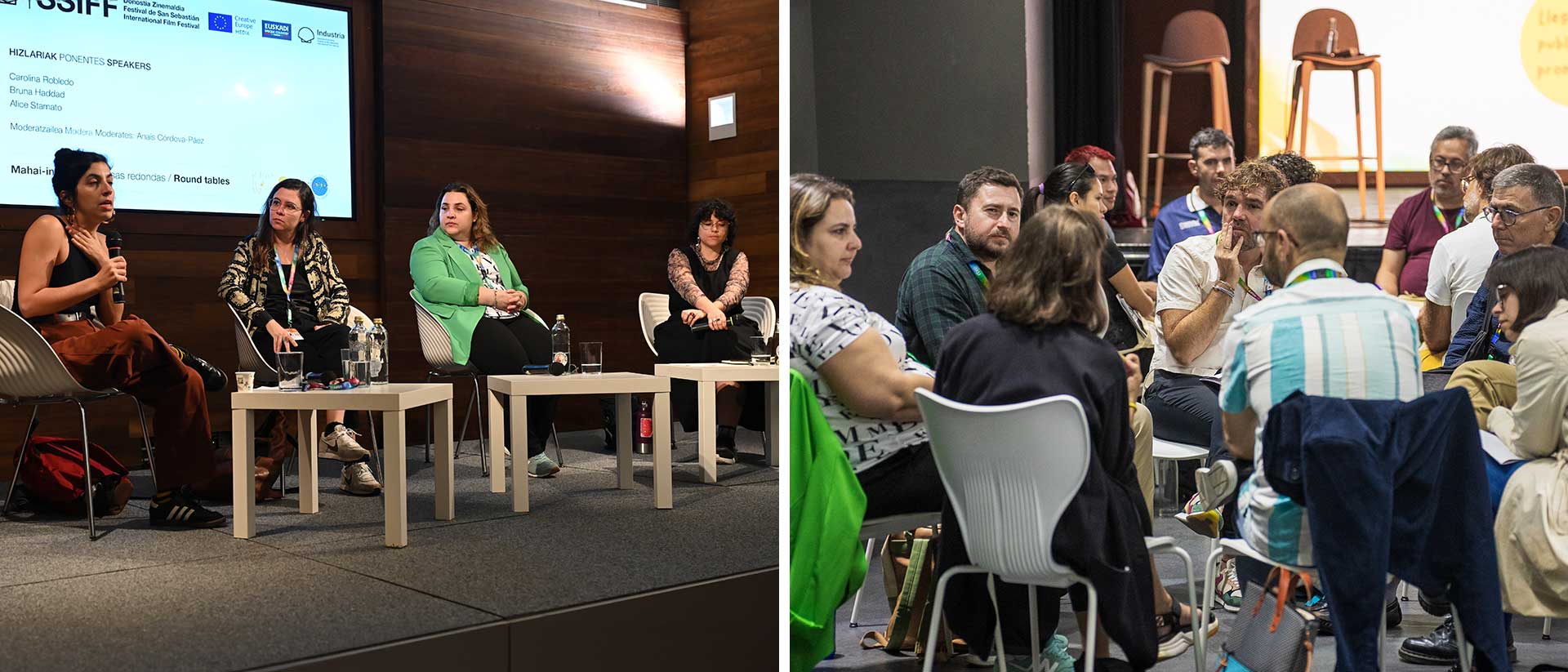
In addition, the 24 festivals from 9 countries (Argentina, Brazil, Colombia, Cuba, Guatemala, Mexico, Peru, Spain and Uruguay) will reflect on The construction of diverse festivals: from the programming to the prejudices. They will also answer the question: Diverse culture? 25 years of LGBTIQA+ audiovisual festivals at a gathering with the participation of representatives of bodies collaborating with the meeting: the Ministry of Equality, the Basque Agency for Cooperation and Solidarity, Acción Cultural Española (AC/E) and the NGO Mugen Gainetik.
Industry professionals, the LGBTIQA+ community attending the Festival and the general public can participate in other activities organised in this framework. Among others, the analysis of LGBTIQA+ diversity in Spanish production with the ODA (Observatory of Diversity in Audiovisual Media); presentation of the short films from the project Shameless Memories: Reclaiming our queer memory, with the collaboration of the Tabakalera audiovisual laboratory, the Elías Querejeta Zine Eskola and the Filmoteca Vasca and a meeting with three professionals from the field of production selected from the LGBTIQA+ lab network, made up of the Mosta FIRE!! in Barcelona, the Zinegoak Festival in Bilbao and the Fundación Triángulo’s Queercinelab.
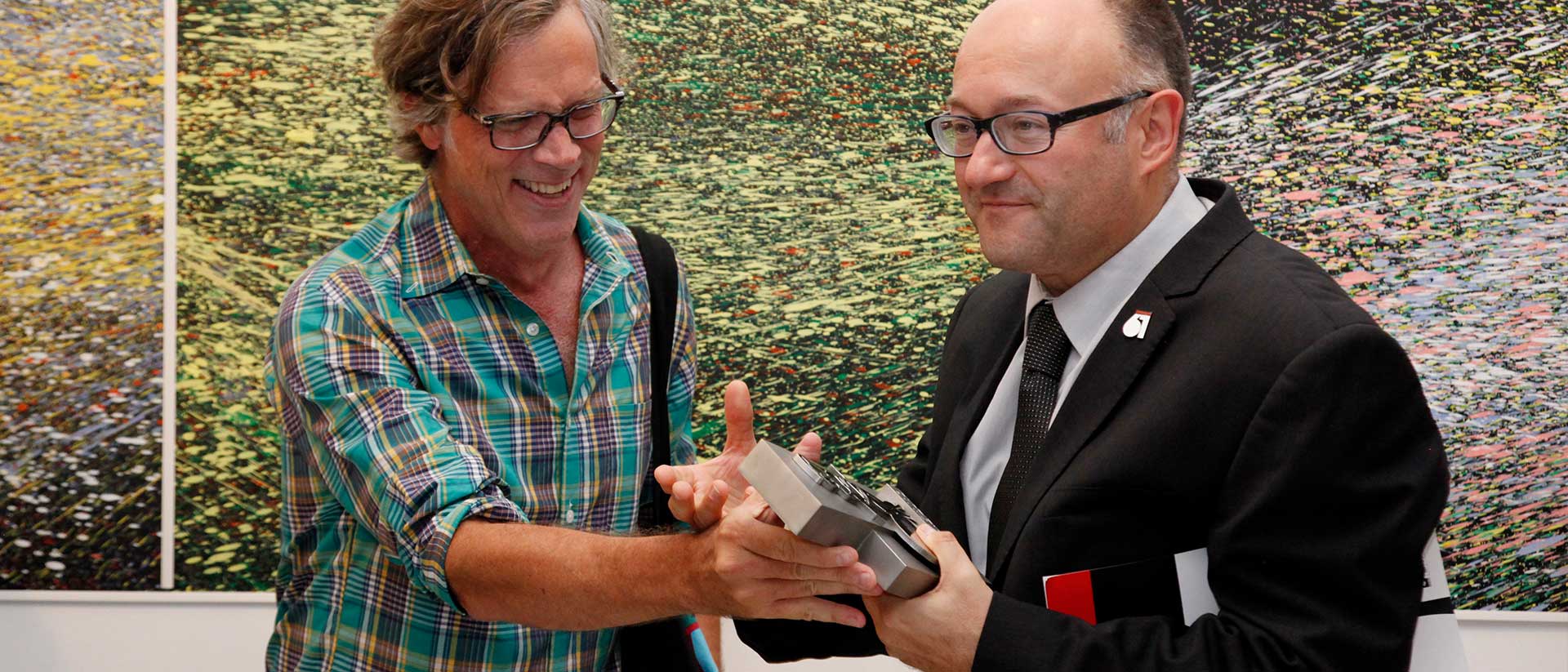
Films to have won the Sebastiane Award
- 2000 Krámpack / Nico and Dani (Cesc Gay)
- 2001 Le fate ignoranti / His Secret Life (Ferzan Özpetek)
- 2002 Thani Thatuwen Piyambanna / Flying With One Wing (Asoka Handagama)
- 2003 Le soleil assassiné /The Sun Assasinated (Abdelkrim Bahloul)
- 2004 Beautiful Boxer (Ekachai Uekrongtham)
- 2005 Malas temporadas / Hard Times (Manuel Martín Cuenca)
- 2006 Estrellas de la línea / The Railroad All-Stars (Chema Rodríguez)
- 2007 Sukkar banat / Caramel (Nadine Labaki)
- 2008 Vicky Cristina Barcelona (Woody Allen)
- 2009 Contracorriente / Undertow (Javier Fuentes-León)
- 2010 80 egunean / For 80 Days (Jose Mari Goenaga, Jon Garaño)
- 2011 Albert Nobbs (Rodrigo García)
- 2012 Joven y alocada / Young and Wild (Marialy Rivas)
-
2013 Dallas Buyers Club (Jean Marc Vallée).
- Jury Especial Mention: Pelo malo / Bad Hair (Mariana Rondón)
- 2014 Une nouvelle amie / The New Girlfriend (François Ozon)
- 2015 Freeheld (Peter Sollet)
- 2016 Bar Bahar / In Between (Maysaloun Hamoud)
-
2017 120 battements par minute / 120 Beats Per Minute (120 pulsaciones por minuto, Robin Campillo).
- Jury Special Mention: Soldatii. Poveste din Ferentari / Soldiers. Story from Ferentari (Ivana Mladenovic)
- 2018 Girl (Lukas Dhont)
- 2019 Monos (Alejandro Landes)
- 2020 Falling (Viggo Mortensen)
- 2021 The Power of the Dog (Jane Campion)
- 2022 Something You Said Last Night (Luis De Filippis)
- 2023 20.000 especies de abejas / 20,000 Species of Bees (Estibaliz Urresola)

